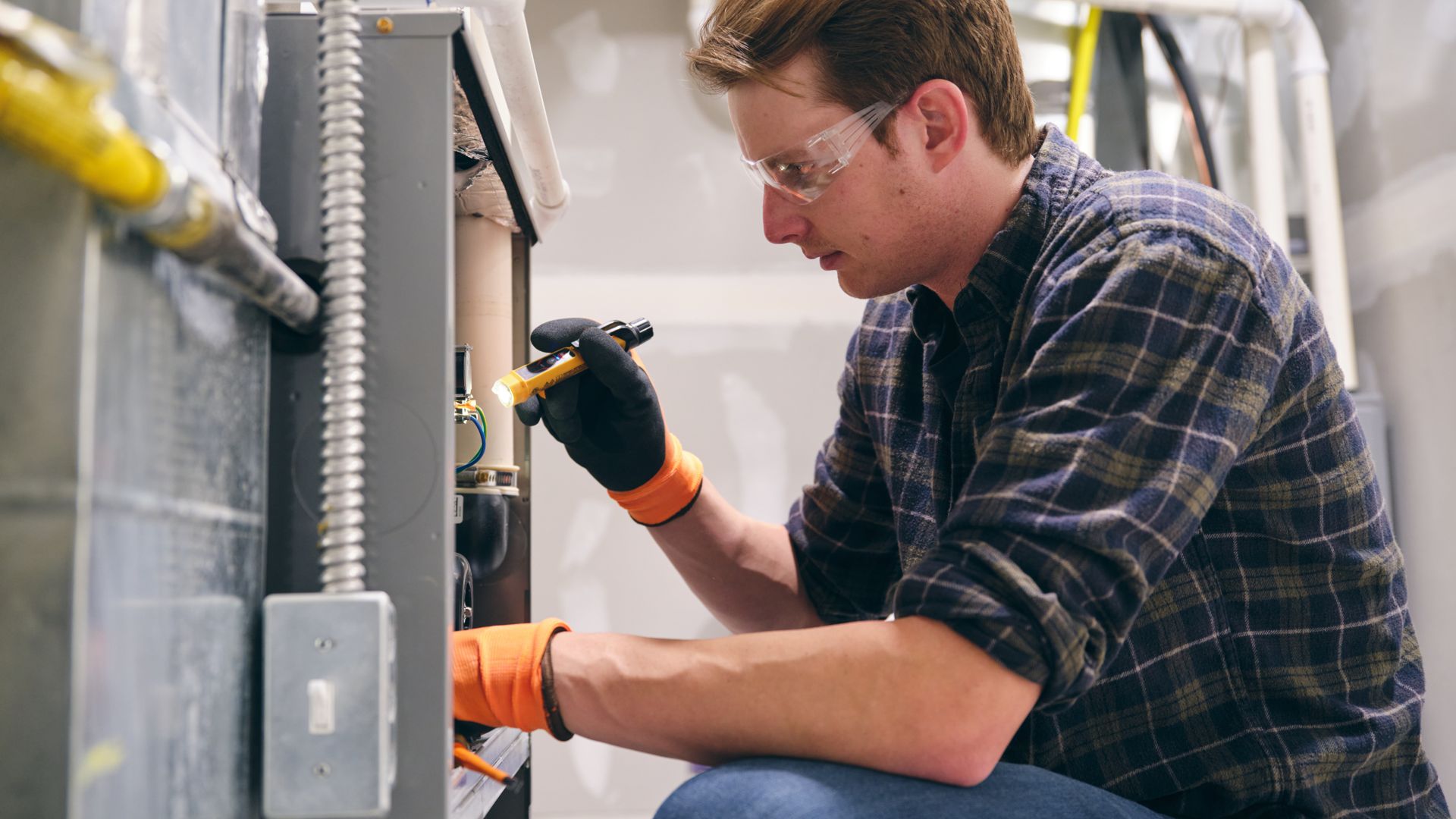
FAQ
-
FAQ
-
I’m having trouble maintaining an even temperature between the upstairs and downstairs of my home. What should I do?Second floors have a tendency to be warmer than lower floors because warm air rises. However, you can do a few things to accomplish an even temperature throughout your home. Try closing the registers, or vents. If it’s winter, closing the upper-floor registers can help force the air to the bottom floor. Closing the lower registers in summer may help you achieve a cooler temperature upstairs. If this process doesn’t work, an automatic zoning system may be a viable solution. This system allows you to regulate the temperature upstairs and downstairs, giving you more control on over your home’s overall temperature.
-
Dirt, dander, and other pollutants give me allergies. What can I do to ensure good air quality in my home?The newest and most efficient HVAC systems seal your home completely from outside air. Although this prevents any outside irritants, it also prevents any pollutants inside your home from escaping. This is why we recommend using a HEPA air filtration system, or another air cleaner or ventilator. Depending on your HVAC system, you can even use a HEPA filter in conjunction with an in-duct air purifier.
-
How often do I need to add Freon to my air conditioner?That is a trick question! If your AC is running properly and leak-free, you should never have to refill it with Freon. Low refrigerant, or a unit that does not blow cold, is an indication that you have a leak. If left unfixed, a leak can prematurely wear out your system or cause compressor damage by “freezing up.” Contact one of our technicians to schedule an AC leak inspection.
-
Is preventative maintenance really necessary?Absolutely! Preventative maintenance not only allows you to keep your heating and AC system running at its best, it also gives your HVAC technician the opportunity to catch issues early on. For example, you may not have noticed a small leak in your AC. If your technician catches and fixes the problem early, it can maximize the lifespan of your system. Without preventative maintenance, you may not catch the leak early enough. Instead of a small repair, you’ll have to invest in an entirely new AC.
-
Why is changing my air filters important?Air filters act as a blockage system and catch incoming and outgoing pollutants in your air supply. If they are not changed properly or often enough, your HVAC system will have to work harder to keep up your desired air flow. This decreases the system’s overall efficiency and can lead to increased energy bills and an overworked AC. Additionally, dirty filters can no longer properly block dust and dander from polluting your air supply. This drastically decreases your air quality and can result in allergies or other respiratory issues. Typically, you should change your AC filter every 90 days. If you have a pet or are prone to allergies, you should replace your filters every 20-40 days.
-
What should I do in the event of a gas leak?In order to answer this question, you must consider what kind of gas you use in your home: When used to heat your home, Propane gas is typically stored and supplied in an outdoor tank. As the gas is denser than air, it will naturally sink to the ground. If you smell gas within your home, exit immediately. If you can, use the manual shut-off at the propane tank. Contact your local Propane supplier and local law enforcement, inform them of the situation, and wait for further instruction. Natural gas is typically used by local utility companies, and monitored by a meter. If you smell a faint odor of gas, you may have a leak. Search your home for any concentrated areas of the smell. If you find one, leave your home and manually shut off your gas meter. Contact our heating experts and local police and notify them of the situation. If you cannot find any concentrated areas, keep your home ventilated and contact our HVAC professionals about a repair.
-
Which blower setting is better: On or Auto?It completely depends on your preference. If you are prone to allergies or use an air purification system, you may find the air quality better if the fan is constantly running. This setting can also help regulate the temperatures between different floors. However, it is typically more energy efficient to use the Auto setting. This setting also gives your HVAC system the opportunity to rest, meaning less wear and tear on your heater and AC.
-